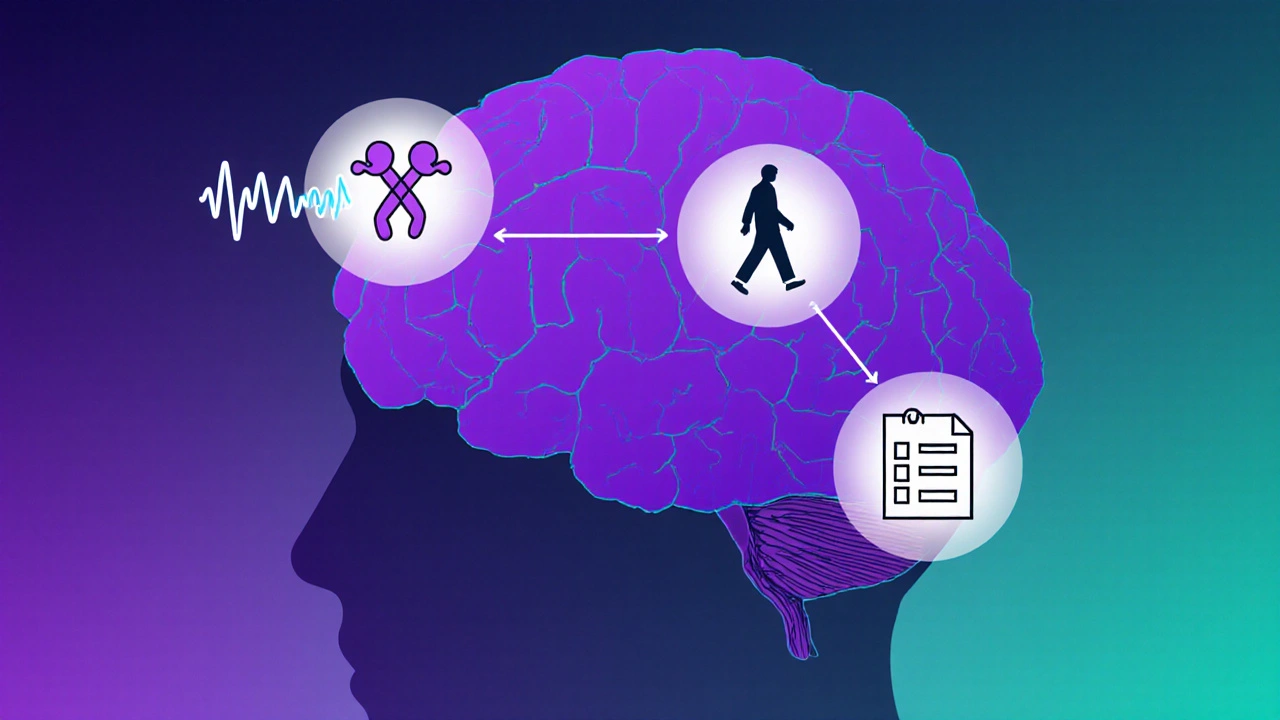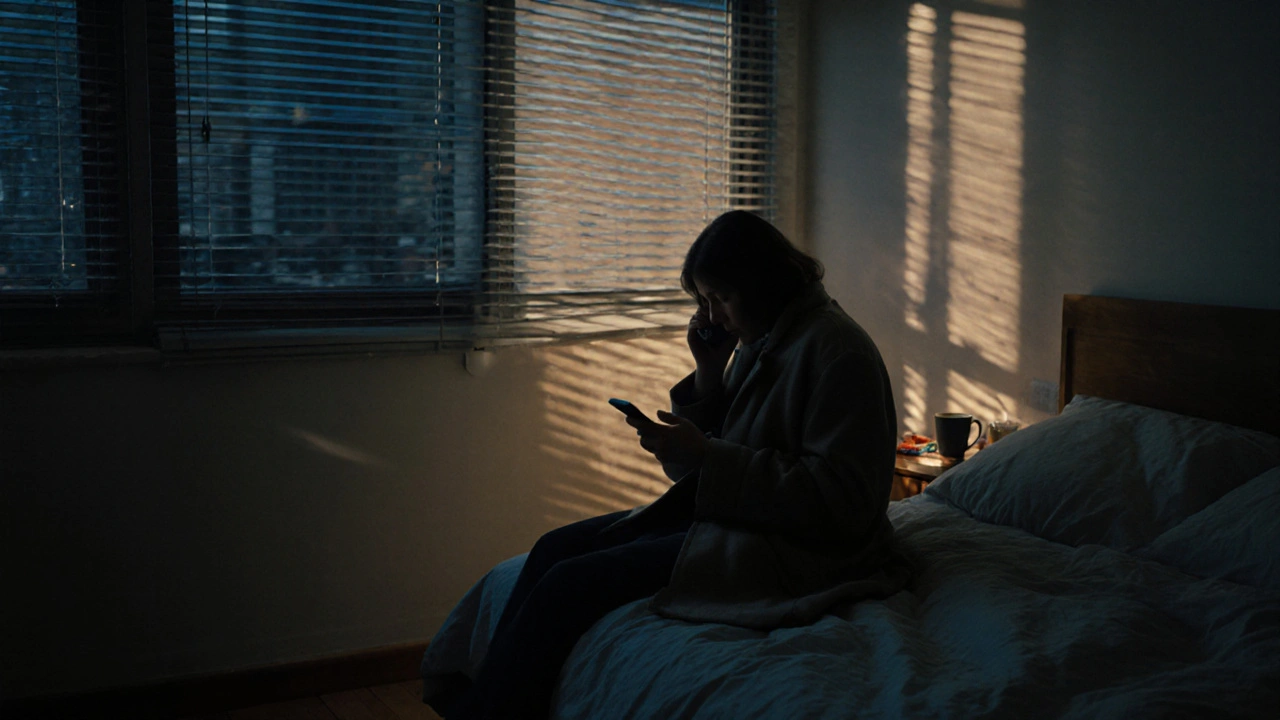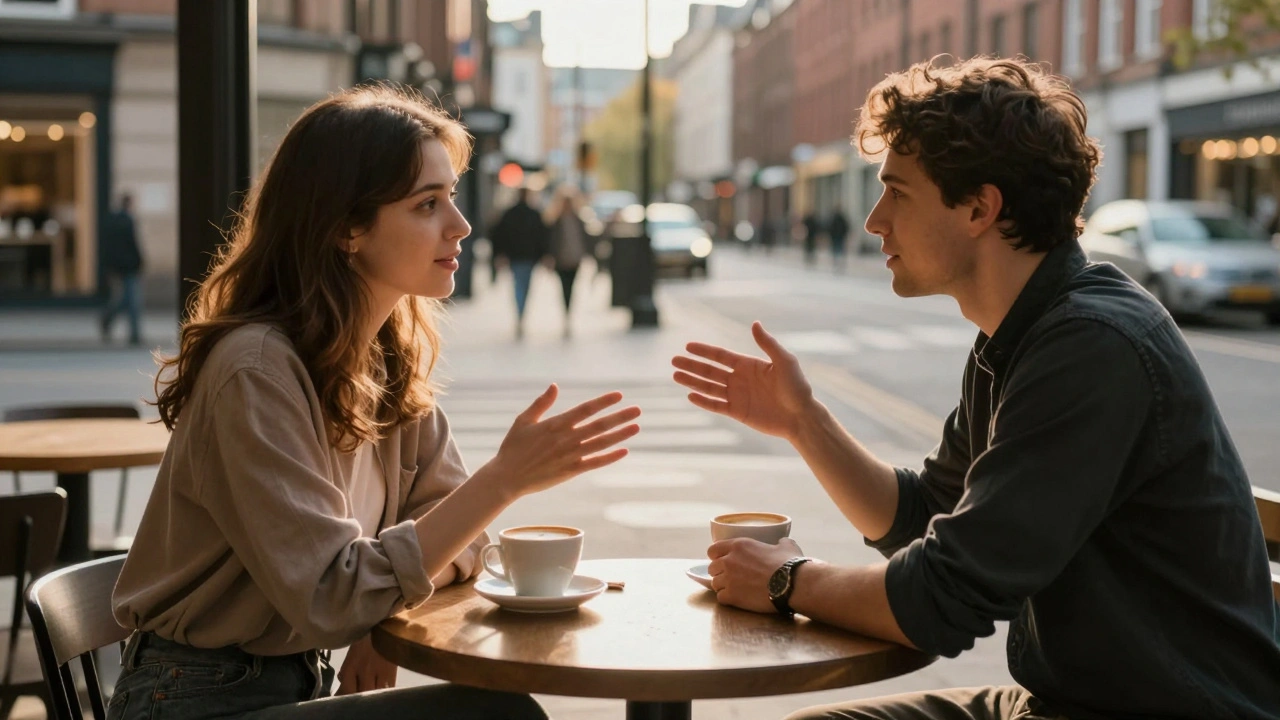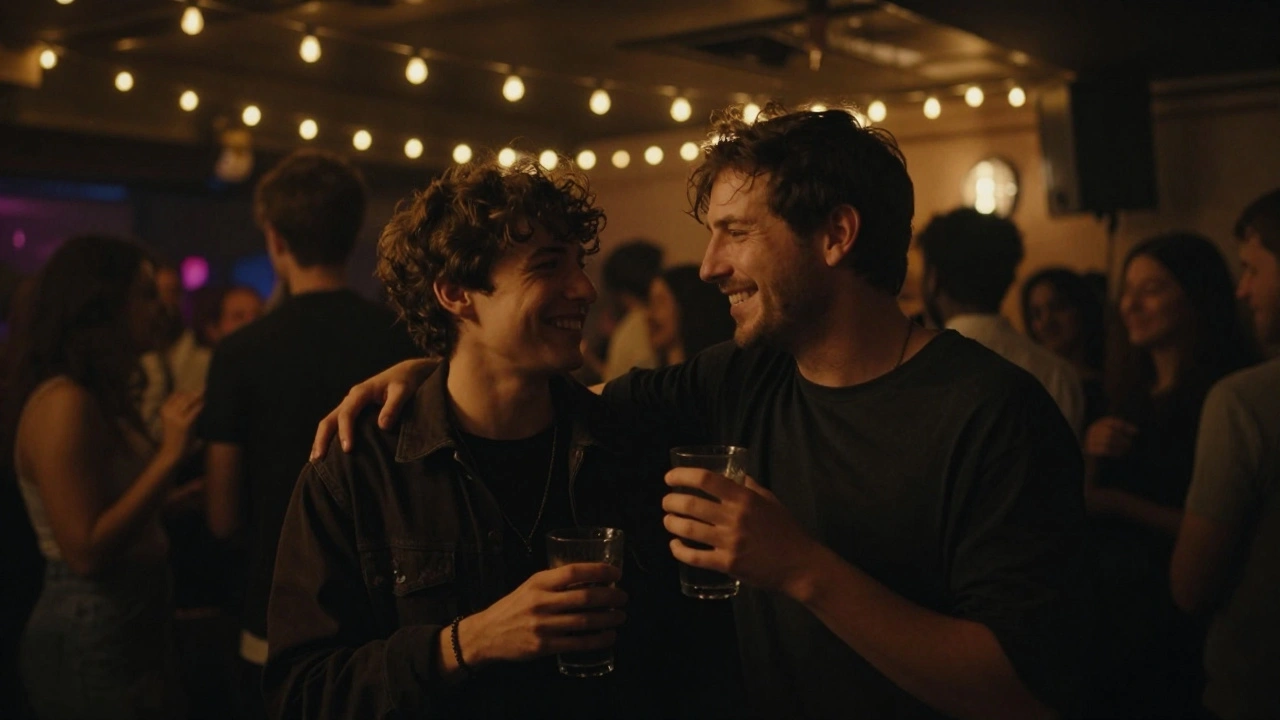You’ve probably thought about it. Maybe you’ve done it. Or maybe you’re wondering if it’s even worth it. One night stands aren’t just a trope in movies or a punchline in comedy sketches-they’re real, messy, and sometimes surprisingly meaningful. But here’s the thing: most people don’t talk about them the way they should. Not the gossip, not the judgment. The real stuff. The risks. The expectations. The safety. The aftereffects.
What Exactly Is a One Night Stand?
A one night stand is a sexual encounter between two people who don’t have an ongoing romantic relationship. It’s not dating. It’s not hooking up with someone you text every day. It’s usually unplanned, often spontaneous, and almost always ends the next morning. No strings. No commitments. Just physical connection.
It sounds simple, but it’s not. People use the term loosely. Some mean a drunken kiss at a party. Others mean a carefully arranged meet-up after matching on an app. The line blurs fast. And that’s where things go sideways.
Why Do People Do It?
People don’t do one night stands for one reason. It’s never just about sex. For some, it’s loneliness. For others, it’s curiosity. A few do it to feel desired after a breakup. A lot do it because they’re tired of the pressure of dating apps and just want to skip the small talk.
There’s research behind this. A 2023 study from the University of Manchester found that 62% of adults aged 25-35 in the UK have had at least one one night stand. The top three reasons? Stress relief (38%), boredom (27%), and wanting to feel attractive again (21%).
But here’s what no one tells you: how you feel the next day matters more than how you felt the night before.
The Real Risks (That No One Talks About)
Let’s get real. The biggest danger isn’t STIs. It’s emotional fallout.
You think you’re fine with it. You tell yourself, “I’m not the clingy type.” But humans aren’t wired for emotional detachment during sex. Oxytocin-the bonding hormone-gets released. Even if you didn’t mean to connect, your brain might have.
Then there’s the stigma. People still whisper. Friends might joke. Exes might bring it up. You start second-guessing yourself. Was it stupid? Was it wrong? Did you lose something you didn’t even know you had?
And yes, STIs are real. Chlamydia, gonorrhea, HIV-they don’t care if you’re “careful.” Condoms help, but they’re not 100%. And not everyone is honest about their status. Testing regularly isn’t optional. It’s basic self-care.

How to Stay Safe
If you’re going to do this, do it smart.
- Get tested before and after. Don’t wait for symptoms. Many STIs show none. Use NHS services-they’re free and confidential.
- Use protection. Condoms aren’t just for birth control. They’re your first line of defense.
- Meet in public first. Never go to someone’s place on the first meet. Coffee, a bar, a park. See how they act. Do they respect your space? Are they calm or pushy?
- Tell someone. Text a friend where you’re going. Set a check-in time. It’s not paranoia. It’s practical.
- Trust your gut. If something feels off, leave. No apology needed.
And please-never mix alcohol or drugs with this. You can’t give consent if you’re passed out. And you can’t trust someone else to protect you if you’re not in control.
What Happens the Next Day?
This is where most people get caught off guard.
You wake up. The room is quiet. You’re not sure if they left or just went to the bathroom. You scroll through your phone. No message. You wonder if you should text. You don’t. You feel weird. Maybe sad. Maybe relieved. Maybe both.
That’s normal. It doesn’t mean you did something wrong. It means you’re human.
Some people move on without a second thought. Others replay it in their head for weeks. There’s no right way to feel. But if you find yourself anxious, depressed, or obsessing over it for more than a few days, talk to someone. A friend. A therapist. A helpline. You don’t have to carry it alone.

One Night Stands vs. Casual Dating
People mix these up all the time.
| Aspect | One Night Stand | Casual Dating |
|---|---|---|
| Expectation | No follow-up | Maybe see each other again |
| Communication | Minimal to none | Texts, maybe a call |
| Emotional Involvement | Usually avoided | Often develops slowly |
| Duration | One time | Weeks or months |
| Common in | Apps like Tinder, parties, travel | Apps like Bumble BFF, Hinge, social circles |
Casual dating doesn’t mean commitment. But it does mean some level of ongoing contact. One night stands are designed to end. If you’re hoping for more, you’re setting yourself up for disappointment.
Frequently Asked Questions
Is it okay to have a one night stand if I’m single?
Yes-if it’s your choice, not your escape. Being single doesn’t mean you owe anyone sex, and it doesn’t mean you have to avoid it either. What matters is whether you’re doing it for yourself, not because you’re lonely, pressured, or trying to prove something.
Can a one night stand turn into something more?
Sometimes. But that’s not the point. If you’re hoping for a relationship, you’re not having a one night stand-you’re dating. Be honest with yourself and the other person. If you want more, say so early. Otherwise, you risk hurting someone-or yourself.
Do people regret one night stands?
About half do, according to a 2024 survey by the UK’s Sexual Health Alliance. But regret isn’t always about the act itself. It’s about how it made them feel afterward. Shame, loneliness, or being treated poorly are the real causes-not the sex.
Are one night stands more common now than before?
Yes. Apps have made it easier, and social norms have shifted. But the emotional impact hasn’t changed. People still feel connected during sex. That hasn’t been deleted by technology. What’s changed is how little we talk about the fallout.
How do I know if I’m ready?
Ask yourself: Am I doing this because I want to, or because I’m afraid of being alone? Do I feel calm about the possibility of no contact afterward? Can I handle silence? If you’re unsure, wait. There’s no prize for being the first. And there’s no shame in taking your time.
Final Thoughts
One night stands aren’t good or bad. They’re just human. They can be freeing. They can be lonely. They can be empowering. They can be a mistake. It all depends on why you’re doing it-and how you treat yourself afterward.
If you choose to do it, do it with your eyes open. Protect your body. Protect your peace. And if it doesn’t feel right? Walk away. You owe yourself that much.




Angie Hansen
November 2, 2025 AT 16:47They don't want you to know this, but every app that pushes casual sex is secretly feeding data to shadowy data brokers who build psychological profiles to manipulate your next relationship. You think you're just hooking up? You're being mapped. Your oxytocin spikes are logged. Your silence after is analyzed. They know exactly when you're vulnerable. And they sell that to dating sites, advertisers, even political campaigns. Wake up.
Dawn Dougherty
November 3, 2025 AT 13:08Actually, I think the whole 'one night stand' thing is just capitalism selling loneliness as liberation. 🤡 Who even says 'no strings attached' anymore? That’s the exact phrase used by people who don’t want to pay for emotional labor. I had one last year. Woke up crying. Then I bought a plant. It’s still alive. Who’s the real winner here?
Beverly DeSimone
November 4, 2025 AT 04:07I appreciate how this post doesn’t shame anyone for their choices, but really hammers home the emotional realities. So many people act like sex is just biology, but the brain doesn’t turn off the attachment system just because you didn’t say ‘I love you.’ That oxytocin point? Spot on. And the safety tips-especially telling someone where you’re going-are non-negotiable. If you’re reading this and thinking ‘I’m fine,’ ask yourself: are you really, or are you just tired of explaining yourself?
Kathy Irion
November 5, 2025 AT 08:34While I understand the intent behind this article to promote informed decision-making, I must respectfully point out that the framing still carries a subtle undertone of moral ambiguity. One night stands are not inherently destructive, nor are they universally empowering. They are neutral acts, shaped entirely by context, intention, and aftermath. The true ethical imperative lies not in avoiding them, but in cultivating the emotional literacy to navigate them with dignity-for oneself and for others. And yes, I do mean 'dignity,' not 'coolness.'
Marie Elizabeth
November 6, 2025 AT 01:00I think the most important thing here is that no one should feel pressured to justify their choices to anyone else. If it felt right in the moment and you didn’t hurt anyone, that’s enough. And if it didn’t? That’s okay too. Healing isn’t linear. You don’t have to be ‘over it’ by Monday. Take your time. Be kind to yourself. You’re not broken. You’re just human.
Danny van Adrichem
November 6, 2025 AT 14:20Let’s be real-this whole ‘one night stand’ narrative is a distraction from the real issue: the collapse of social infrastructure. You think people are doing this because they’re lonely? No. They’re doing it because the social safety net is gone. No community centers. No public parks where people just hang out. No church groups. No shared meals. No rituals. Just apps that monetize your desperation. And the government? They’d rather you stay distracted with sexual freedom rhetoric than demand universal healthcare, housing, and mental health access. This isn’t about sex-it’s about control. They want you to think your problems are personal when they’re systemic. The fact that you’re even reading this article means you’ve been conditioned to believe your emotional pain is a lifestyle choice. It’s not. It’s a symptom. And the cure isn’t better condoms-it’s a revolution.